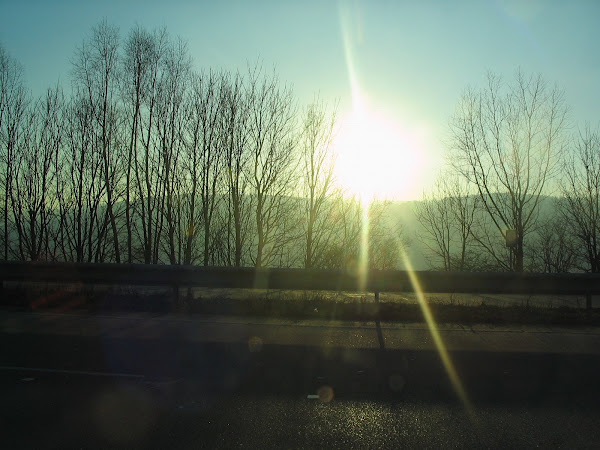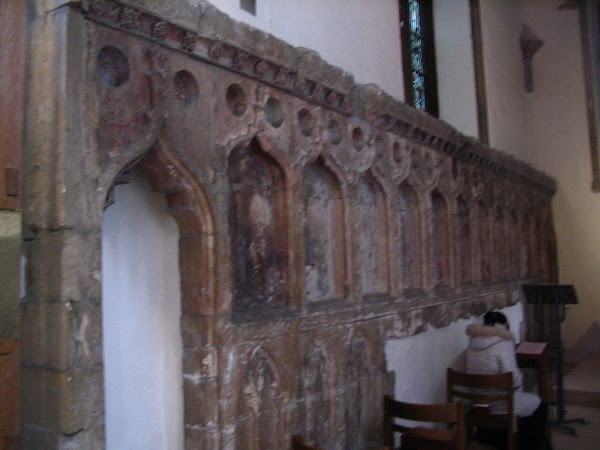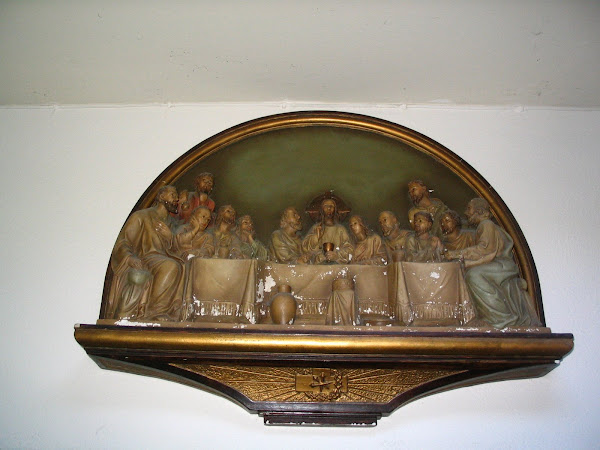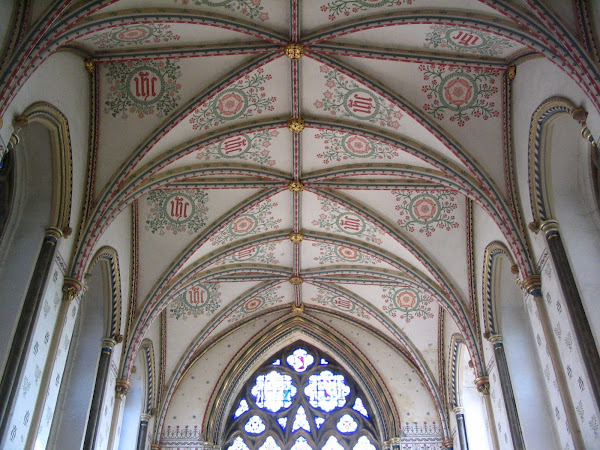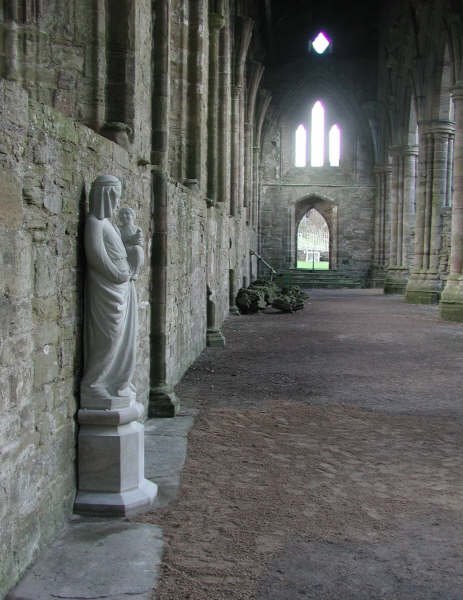(DEGUI, DEWI).
Bishop and Confessor, with St Winifred ,patron of Wales. He is usually represented standing on a little hill, with a dove on his shoulder. From time immemorial the Welsh have worn a leek on St. David's day, in memory of a battle against the Saxons, at which it is said they wore leeks in their hats, by St. David's advice, to distinguish them from their enemies. He is commemorated on 1 March. The earliest mention of St. David is found in a tenth-century manuscript Of the "Annales Cambriae", which assigns his death to A.D. 601. Many other writers, from Geoffrey of Monmouth down to Father Richard Stanton, hold that he died about 544, but their opinion is based solely on data given in various late "lives" of St. David, and there seems no good reason for setting aside the definite statement of the "Annales Cambriae", which is now generally accepted. Little else that can claim to be historical is known about St. David. The tradition that he was born at Henvynyw (Vetus-Menevia) in Cardiganshire is not improbable. He was prominent at the Synod of Brevi (Llandewi Brefi in Cardiganshire), which has been identified with the important Roman military station, Loventium. Shortly afterwards, in 569, he presided over another synod held at a place called Lucus Victoriae.(Llan-dewi brefi) He was Bishop (probably not Archbishop) of Menevia, the Roman port Menapia in Pembrokeshire, later known as St. David's, then the chief point of departure for Ireland St. David was canonized by Pope Callistus II in the year 1120.
This is all that is known to history about the patron of Wales. His legend, however, is much more elaborate, and entirely unreliable. The first biography that has come down to us was written near the end of the eleventh century, about 500 years after the saint's death, by Rhygyfarch (Ricemarchus), a son of the then bishop of St. David's, and is chiefly a tissue of inventions intended to support the claim of the Welsh episcopate to be independent of Canterbury. Giraldus Cambriensis, William of Malmesbury, Geoffrey of Monmouth, John de Tinmouth, and John Capgrave all simply copy and enlarge upon the work of Rhygyfarch, whilst the anonymous author of the late Welsh life printed in Rees, "Cambro-British Saints" (Cott. manuscript Titus, D. XXII) adds nothing of value. According to these writers St. David was the son of Sant or Sandde ab Ceredig ab Cunnedda, Prince of Keretica (Cardiganshire) and said by some to be King Arthur's nephew, though Geoffrey of Monmouth calls St. David King Arthur's uncle. The saint's mother was Nonna, or Nonnita (sometimes called Melaria), a daughter of Gynyr of Caergawch. She was a nun who had been violated by Sant. St. David's birth had been foretold thirty years before by an angel to St. Patrick. It took place at "Old Menevia" somewhere about A.D. 454. Prodigies preceded and accompanied the event, and at his baptism at Porth Clais by St. Elvis of Munster, "whom Divine Providence brought over from Ireland at that conjuncture", a blind man was cured by the baptismal water. St. David's early education was received from St. Illtyd at Caerworgorn (Llantwit major) in Glamorganshire. Afterwards he spent ten years studying the Holy Scripture at Whitland in Carmarthenshire, under St. Paulinus, (Pawl Hen), whom he cured of blindness by the sign of the cross At the end of this period St. Paulinus, warned by an angel, sent out the young saint to evangelize the British. St. David journeyed throughout the West, founding or restoring twelve monasteries (among which occur the great names of Glastonbury, Bath, and Leominster), and finally settled in the Vale of Ross, where he and his monks
lived a life of extreme austerity. Here occurred the temptations of his monks by the obscene antics of the maid-servants of the wife of Boia, a local chieftan. Here also his monks tried to poison him, but St. David, warned by St. Scuthyn, who crossed from Ireland in one night on the back of a sea-monster, blessed the poisoned bread and ate it without harm. From thence, with St. Teilo and St. Padarn, he set out for Jerusalem, where he was made bishop by the patriarch. Here too St. Dubric and St. Daniel found him, when they came to call him to the Synod of Brevi "against the Pelagians". St. David was with difficulty persuaded to accompany them; on his way he raised a widow'son to life, and at the synod preached so loudly, from the hill that miraculously rose under him, that all could hear him, and so eloquently that all the heretics were confounded. St. Dubric resigned the "Archbishopric of Caerleon", and St. David was appointed in his stead. One of his first acts was to hold, in the year 569, yet another synod called "Victory", against the Pelagians, of which the decrees were confirmed by the pope. With the permission of King Arthur he removed his see from Caerleon to Menevia, whence he governed the British Church for many years with great holiness and wisdom. He died at the great age of 147, on the day predicted by himself a week earlier. His body is said to have been translated to Glastonbury in the year 966.



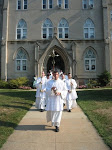
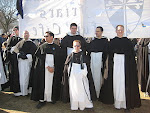



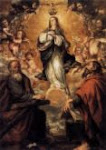

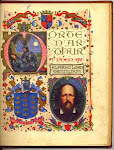
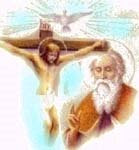






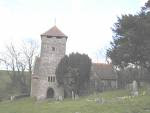
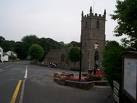


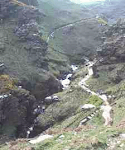




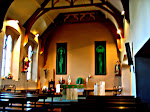


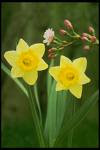




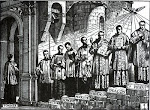

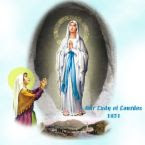


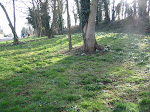

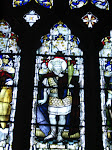
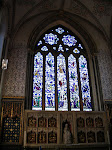
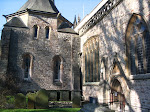
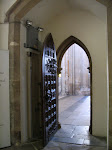
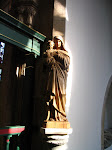

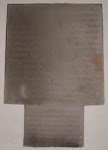



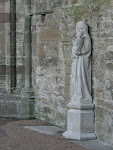

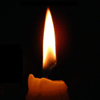







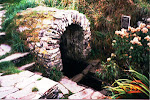

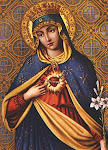
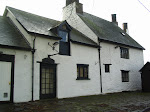
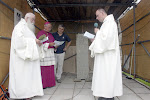

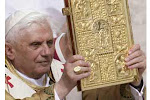







.jpg)










